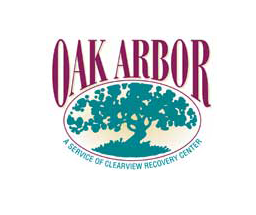3 Things You Should Know About the Genetic Side of Addiction
- By Admin
- •
- 08 Oct, 2020
- •
If you have always wondered whether you can chalk your substance abuse issues up to an addictive personality or inherited proclivity, you can benefit from learning more about the genetic side of addiction. Here are three key points that can help you understand your situation and seek effective answers.
1. Genetic Factors Play a Major Role in Addiction Risk
Genetic factors may account for of an individual's lifetime addiction risk, with external influences accounting for the other 50 percent. Among twin siblings of addicts, identical twins have consistently shown an elevated risk for developing an addiction themselves compared to non-identical twins of addicts.
Addiction also seems to pass from one generation to the next in families. Children of addicts have eight times more the risk of falling into addiction than the children of non-addicts. While this elevated risk may partly stem from learned behaviors, it also suggests that inherited factors play a significant role.
While medical science has yet to isolate one specific addiction gene, other genes clearly affect the biochemistry of the brain's reward system. For example, genes dictate the brain's inherent ability to regulate dopamine. This neurotransmitter controls feelings of pleasure and reward by stimulating opioid receptors, (just as drugs do).
Researchers have identified a specific genetic factor that can alter the brain's dopamine responses, an RNA agent called human endogenous retrovirus-K HML-2 or HK2. This agent, which integrates with dopamine-regulating genes, appears more commonly in people with substance abuse problems and addictions.
2. Environmental Influences Can Influence Genetic Addiction Factors
An individual's move toward addiction may originate from environmental triggers such as traumatic events, work stress, a violent home life, and even sheer boredom that drives them to seek escape. Once the addictive behavior eases the pain of these triggers, genetic tendencies may then strengthen the hold of addiction.
As familiar as these scenarios may sound in your own life, you may not realize that these same environmental influences can actually alter the ways your genes function, including the genes that make you more vulnerable to addiction. Scientists refer to these alterations as epigenetic changes.
Stress can trigger epigenetic changes. Stressful situations signal the brain to produce floods of hormones called glucocorticoids. These glucocorticoids can change the ways genes express themselves, including the way they regulate the brain's reward system. The resulting malfunctions may make you more vulnerable to addiction.
The addictive behavior itself can also produce epigenetic changes of its own, perpetuating a vicious cycle of reinforcement. For example, abused drugs can influence histones, protein spools that genes use as tools to help regulate their expression. Changes in the histones can lead to changes in the ways certain genes affect brain function.
3. Successful Treatment May Involve Addressing Both Genetic and Epigenetic Issues
These findings indicate that addiction involves a closely intertwined relationship between biology and environment, rendering the old nature-versus-nurture argument obsolete. They also imply that successful treatment for your addiction may call for a holistic approach that takes every potential factor into account.
Advances in our understanding of genetics have helped researchers develop new therapies for treating addiction at the biochemical level. Recovery techniques that help you abstain from drugs or alcohol can help you keep these substances from rewiring your brain chemistry through epigenetic changes.
You can also work on controlling outside influences that may promote addiction at the genetic level, especially stress. A combination of increased physical activity, elimination of stress triggers, and the creation of a strong social support system can all help, both during treatment and afterward.
As you take action to receive the appropriate form of treatment for your addiction, make a place in your plan for Oak Arbor. Our facility can help you make a smoother transition back to the healthy, productive life you want and deserve. Contact us today to learn more.






